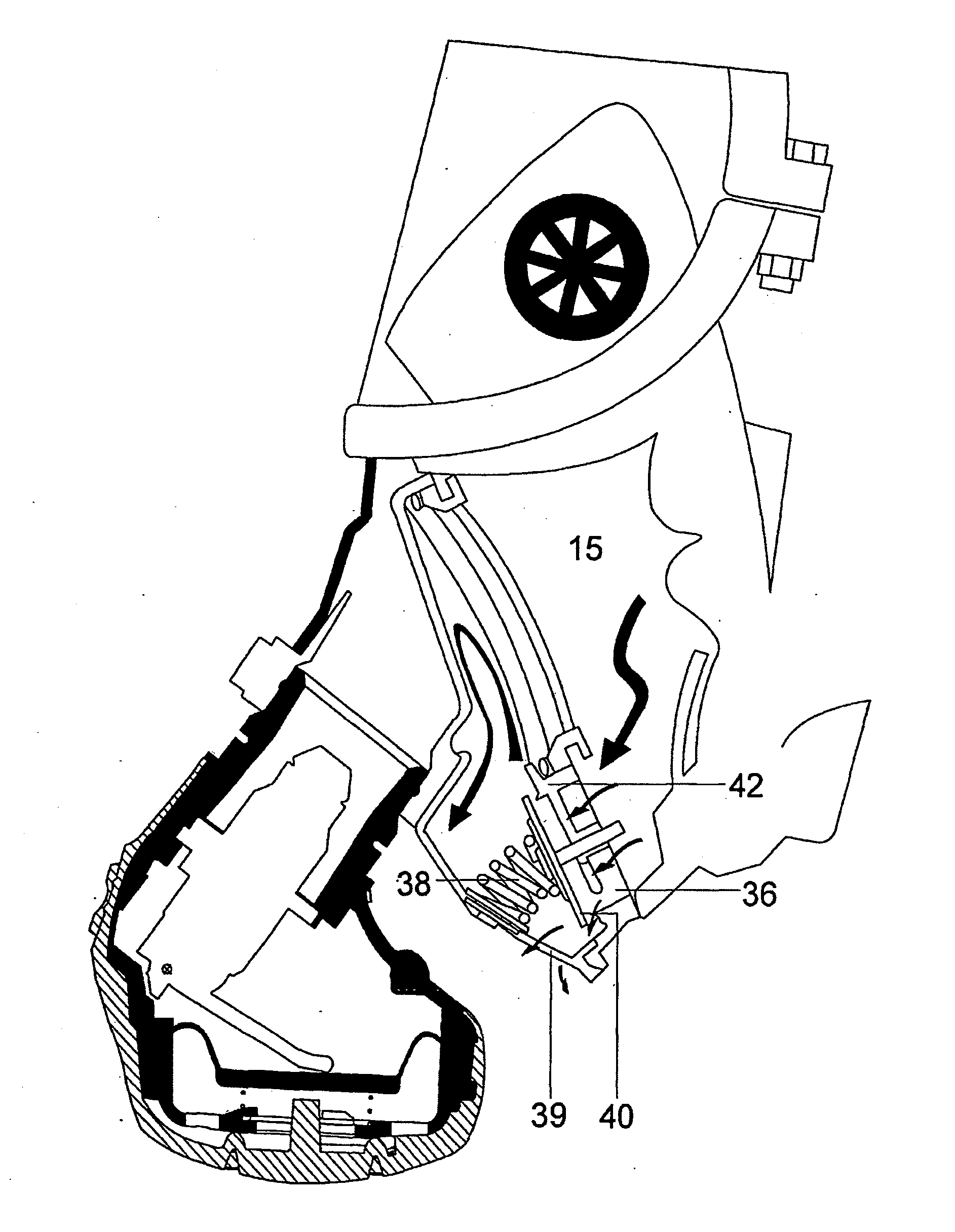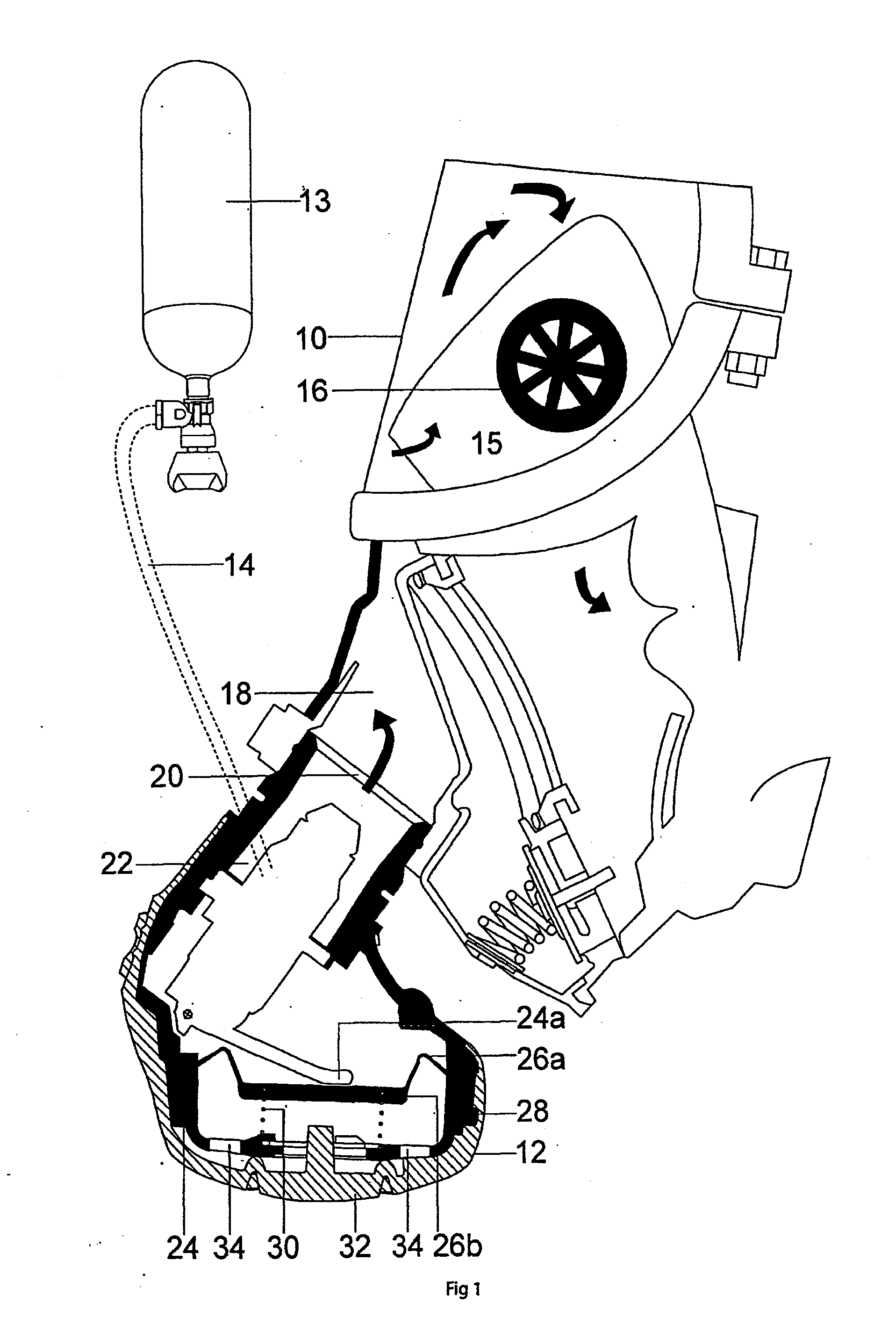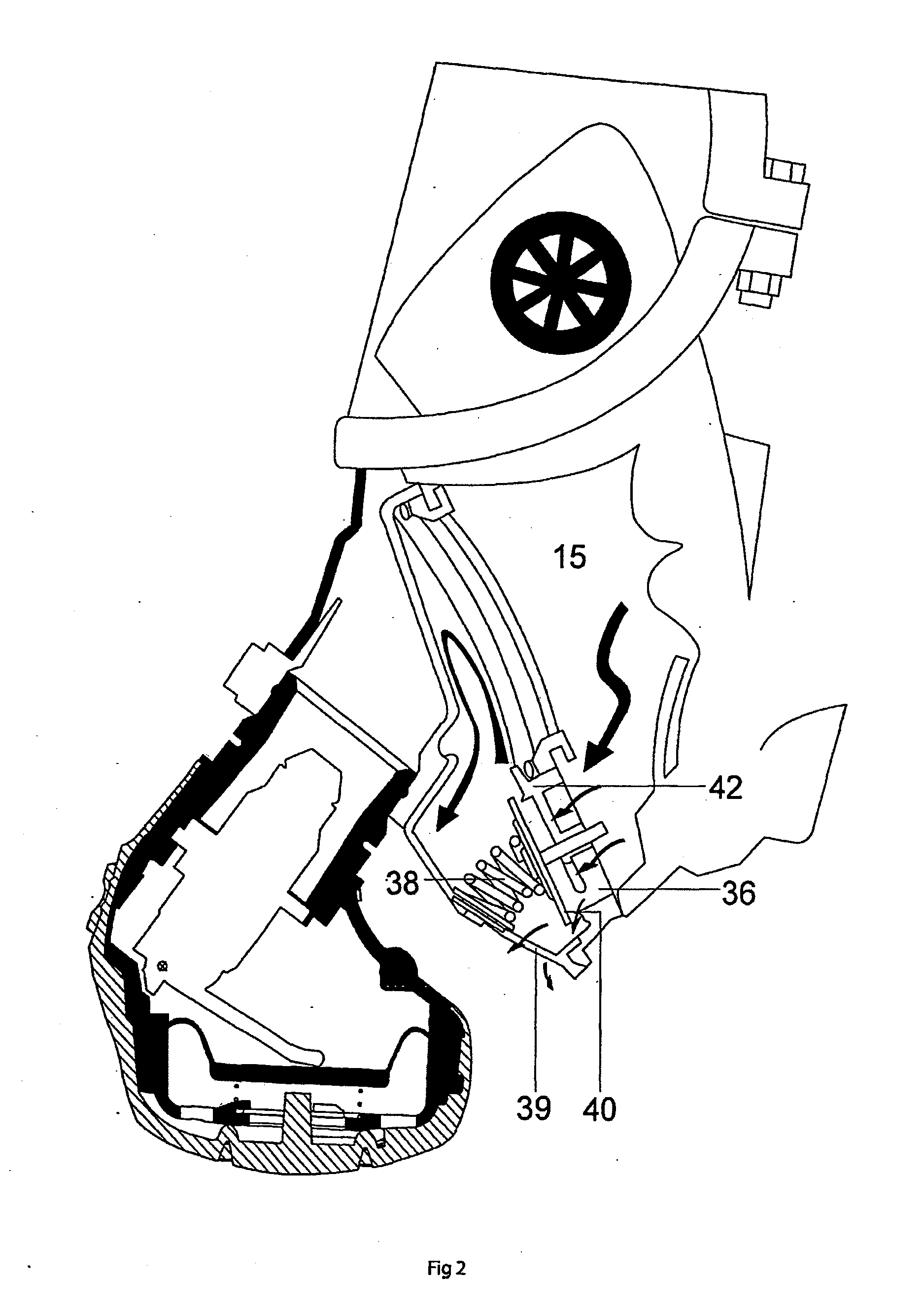Breathing apparatus
a breathing apparatus and self-contained technology, applied in the direction of breathing protection, underwater equipment, waterborne vessels, etc., can solve the problem of toxins diffusing through the membran
- Summary
- Abstract
- Description
- Claims
- Application Information
AI Technical Summary
Benefits of technology
Problems solved by technology
Method used
Image
Examples
Embodiment Construction
[0026]Turning to FIG. 3, this is a side view of a mask and LDV constructed in accordance with one exemplary preferred embodiment of the present invention. In particular, FIG. 3 shows a mask 10, an LDV, generally represented by 12, a cylinder 13 and hose 14, and an inner mask 15 complete with non-return valve 16. The mask 10, LDV 12 cylinder 13 and hose 14 are identical to the equivalents, shown in FIGS. 1 and 2 and, during an inhalation phase, they operate in the same manner as the prior art apparatus described above.
[0027]However, in accordance with the present invention the LDV 12 is provided with a cover 44 which comprises three parts, namely, a yoke, 44a, a rubber cover portion 44b and a rigid plastic duct portion 44c.
[0028]The rigid plastic yoke 44a extends across the top of the supply port (not shown) of the LDV and is secured by screws 46 (only one of which is shown in FIG. 3). The screws are located on both sides of the yoke and threadedly engage the rigid plastic duct port...
PUM
 Login to View More
Login to View More Abstract
Description
Claims
Application Information
 Login to View More
Login to View More - R&D
- Intellectual Property
- Life Sciences
- Materials
- Tech Scout
- Unparalleled Data Quality
- Higher Quality Content
- 60% Fewer Hallucinations
Browse by: Latest US Patents, China's latest patents, Technical Efficacy Thesaurus, Application Domain, Technology Topic, Popular Technical Reports.
© 2025 PatSnap. All rights reserved.Legal|Privacy policy|Modern Slavery Act Transparency Statement|Sitemap|About US| Contact US: help@patsnap.com



